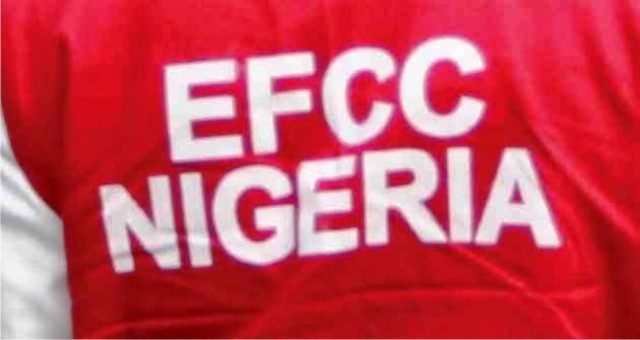Opinion
Why Save Loots Amidst Hunger?

It beats my imagination that while Nigeria, the giant inundated by the wallows in the trauma of economic recession, the the mass media is discovery of diverted and looted funds by fraudulent individuals.
It is either a recovery of $42m from a top politician’s Ikoyi , Lagos home or that of $50m in Osborne Tower apartment still in Ikoyi. The Economic and Financial Crime Commission’s (EFCC) discoveries of $1m raw cash in yet another politician’s mansion in Maitama, and the recent “ stack of cash in an Ikoyi apartment”, are all parts of the daily posts in our media platforms.
The money, worth $38m, 27000 pounds and 23m Naira, was reportedly found locked in cabinets 24 hours after uncovering a whopping 250 million naira from a market in Balogun, Lagos. This offcourse is not without thanks to a whistle blower’s confidential alert received by the EFCC office, regarding suspicious movement of bags in and out of a particular apartment at Osborne Towers, located at 16 Osborne Road, Ikoyi, Lagos.
These latest developments are just a fraction of similar developments recorded in recent times. Thus, it is no longer news to intimate the public about loot discoveries, the public is rather interested on how the loots are plunged back into the system for the good of the suffering masses.
Unfortunately, the Chairman, Presidential Advisory Committee Against Corruption, Prof Itse Sagay, once revealed that despite recovering stolen Nigerian money, President Muhammadu Buhari might not be able to spend the monies on urgent needs of the country. Instead, he said, an account has been set up for the stolen fund.
Although setting up an account could be a preliminary step to securing the fund, it is still unclear why the Federal Government’s hands had remained tied to the liberty of its use to alleviate the plight of the suffering masses.
Prof Sagay’s explanation that certain cases have not been concluded as such forfeiture of such funds are on interim basis that could be ordered by the court to be released to the owners, could well be interpreted as being on the defensive.
I agree that for funds discovered in people’s bank account, any legal process could be instituted, but for funds stacked in personal apartments, dugged pits and the likes, where owners even dread to be mentioned, why would any government worth its salt not be bold enough to confisticate and use them to better the lots of the generality of the masses who have been suffering due to the activities of the money looters?
The published and unpublished reports on financial and asset recoveries made by the Federal Government Nigeria from May 29, 2015, till date, to a reasonable extent, has the potential to change the story of Nigerians in their present circumstance.
However, the inability of the Federal Government to reabsorb the nation’s looted fund when discovered has made the entire effort meaningless and unable to deter even the looters themselves from such corrupt practices.
For crying out loud, everything about this recent discovery of $43, 449, 947, £27, 800 and N23, 218,000 in an apartment is illegal and deserves no compromise. Come to think of it, why has nobody been able to claim ownership of such money?
Incidences like this are replete in our country and for anyone to be keeping these loots for whatever reason when the masses are faced with problems of structural and stomach infrastructure, it could be adjudged not having the interest of the masses at heart.
It is, therefore, in the light of the above that tI consider saving the loots and consider saving the identity of the looters as a disservice to the good of the country and its citizenry.
There is no better way to sanitise the image of our great country outside our territorial shores than to frankly dissociate the country from corruption at any level as well as humiliate perpetrators. Any form of compromise, where by perpetrators are hidden and pampered and their loots preserved, is, to say the least, obviously playing to the gallery.
The Nigerian populace would repose more confidence in this administration if it will stand out in its fight against corruption, by not shielding any sacred cow and ensuring that looted funds are judiciously plunged back into the system for the good of all.
Sylvia ThankGod-Amadi
Opinion
NDDC: Time To Illuminate Homes

Opinion
When Democracy Becomes Too Expensive

Opinion
Righteous Leadership Still Thrives

-
Politics3 days ago
2027: NIGERIANS FAULT INEC ON DIGITAL MEMBERSHIP REGISTER DIRECTIVE
-

 Environment3 days ago
Environment3 days agoLAWMA Director Says Sweeping Reforms Have Improved Waste Collection
-
Politics3 days ago
LP Crisis: Ex-NWC Member Dumps Dumps Abure Faction
-

 Politics3 days ago
Politics3 days agoUmahi Dismisses Allegations On Social Media, Insists On Projects Delivery
-

 Sports3 days ago
Sports3 days agoAbia Not Sure To Secure continental Ticket
-
Sports3 days ago
La Liga: Yamal Records First Career Hat-trick
-
Politics3 days ago
NATASHA ELECTRIC VEHICLES INITIATIVE IN KOGI CENTRAL
-
Politics3 days ago
IT’S A LIE, G-5 GOVS DIDN’T WIN ELECTION FOR TINUBU – SOWUNMI

